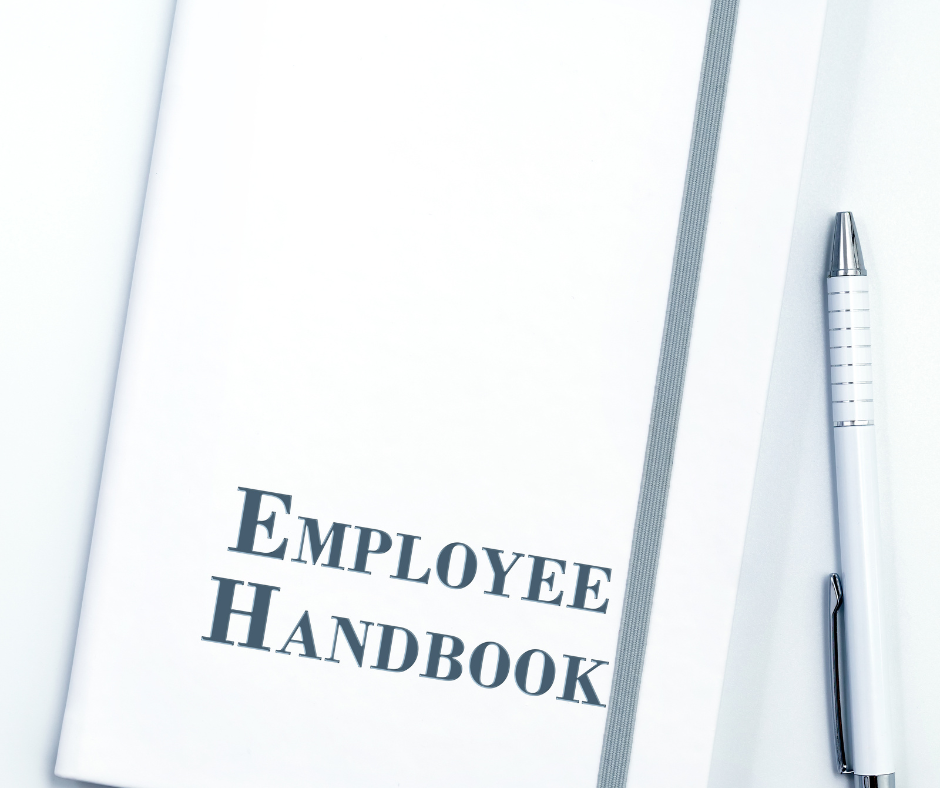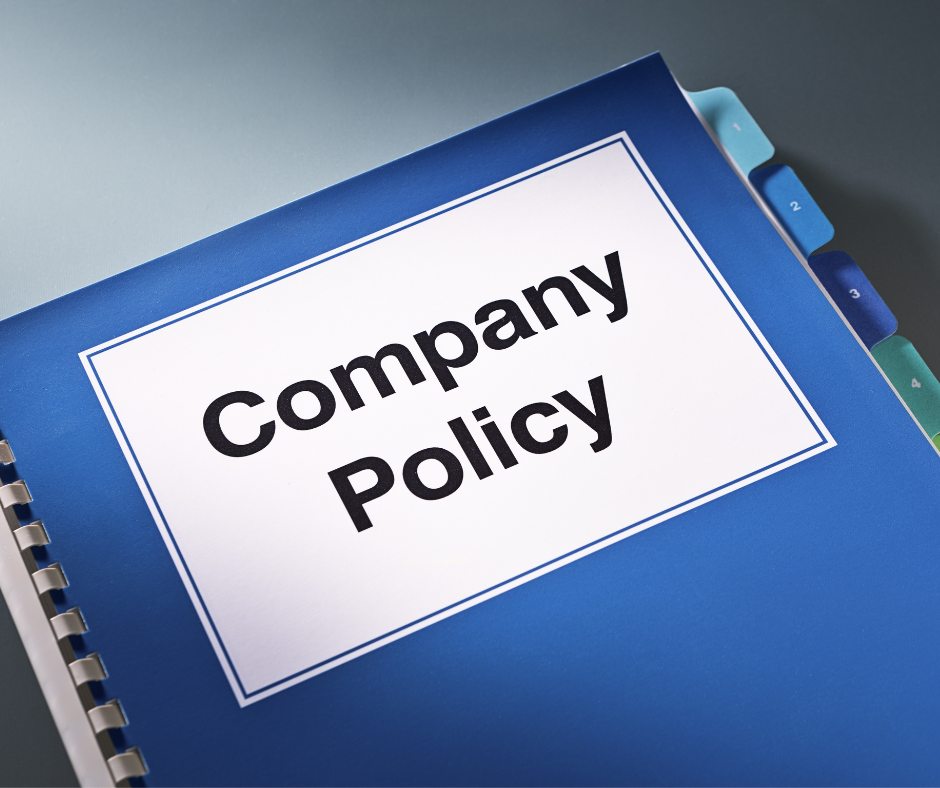
Key Takeaway:
- Employee handbooks are crucial for arts, entertainment, and recreation industries companies, as they set expectations for behavior, outline company policies, and establish legal protections for employers.
- Effective employee handbooks for companies in industries such as sporting goods, hobby, book and music stores should include elements such as the company’s background and values, employee policies and benefits, harassment and discrimination policies, safety and security procedures, and performance expectations and disciplinary action. Learn more about creating employee handbooks for these industries.
- Legal considerations should also be taken into account when drafting employee handbooks, including compliance with state and federal laws, protection against employee lawsuits, and regular review and updates of the handbook to stay up-to-date and relevant.
Are you managing an amusement, gambling, or recreation company? Understand and protect your employees with an employee handbook. You’ll ensure compliance and maximize productivity. Safeguard your business with the right handbook.

Importance of Employee Handbooks in Amusement, Gambling, and Recreation Industries
The Significance of Employee Handbooks in the Amusement, Gambling, and Recreation Industries
Employee Handbooks are crucial for all industries including Amusement, Gambling, and Recreation. They communicate policies and procedures enabling consistent and fair treatment of employees. Moreover, handbooks outline the expectations of the company from its staff, providing clarity, and promoting a productive work culture.
In these industries, it is pertinent to have a clear briefing on safety and security protocols, compliance and regulatory standards, and ethical practices. Further, employee handbooks highlight the disciplinary process and the consequences of violating company policies, ensuring that matters are handled professionally and discreetly.
A well-designed Employee Handbook can act as an orientation guide for new hires, providing an introduction to corporate values, expectations, and policies. It can also function as a reference guide for existing employees in case of any queries.
To create an effective handbook, it is critical to involve staff to ensure that the policies and procedures are easily understood and lead to better compliance. Additionally, the language should be simple, transparent, and free from legal jargon. Moreover, the format should be user-friendly with clear headings and sub-headings, making it easy to navigate.
Employee Handbooks for Amusement, Gambling, and Recreation Industries should be continuously evaluated and updated. As the industry evolves, so do the policies and regulations, making revisions necessary. Unternehmen should invest the time and resources required to keep their employee handbooks current and accessible to all employees.

Elements of an Effective Employee Handbook
For an effective employee handbook, focus on your company and employees’ needs. Guide them to comprehend your firm’s background and values. Detail out the employee policies and advantages. Make sure there are no-harassment and discrimination policies. Stress on safety and security protocols. Also, make clear performance expectations and disciplinary action.
Company Background and Values
Amusement, gambling, and recreation industries need to outline their unique company background and values in their employee handbook effectively. This section should provide a brief history of the organization, its mission statement, core values and goals. By doing so, employees develop an understanding of the organization’s culture that aligns with their personal beliefs.
Additionally, include a clear description of the business model and how it supports these values to promote loyalty towards customers. Clearly articulating these facts leads to better communication and employee engagement within the organization.
It’s also essential to communicate how you differentiate your company from others in the industry through innovative methods such as implementing new technologies or supporting social responsibility programs. According to a study conducted by CareerBuilder, 26% of employees said they didn’t feel engaged with their employer’s company mission or vision which impacted morale. Why provide unlimited snacks when you can just promise a lifetime supply of good karma points for not eating them all?
Employee Policies and Benefits
As part of a comprehensive employee management strategy, it is crucial for amusement, gambling, and recreation companies to have a well-crafted set of policies and benefits for their employees. This ensures that all employees understand their rights and responsibilities within the company, which promotes a harmonious working environment. Additionally, such policies provide clarity on how promotions, performance evaluations and disciplinary issues are handled while clearly defining the benefits available to employees.
An effective employee handbook should reflect the value proposition of the company while staying up-to-date with changing legal requirements. More importantly, it should be written in clear language that is easily understood by everyone in your organization. Examples of policies that can be included are work schedules, holidays, sick days, dress codes and leave benefits. One unique benefit that companies can offer are employee assistance programs (EAPs). EAPs allow employees access to professional counseling services covering stress management education on wellness topics that could alleviate challenges encountered within the workplace or personal problems they may face beyond working hours. Pro Tip: Regularly review your employee handbook at least every two years to ensure it remains updated with current laws and regulations.
Harassment and discrimination policies – because apparently reminding employees to treat each other like decent human beings is necessary.
Harassment and Discrimination Policies
The policies aimed at preventing discrimination or harassment in the workplace ensure a safe and inclusive space for individuals. These regulations prohibit any form of bias based on age, gender, race, religion, ethnicity, nationality, or sexual orientation. It is important to establish procedures for reporting misconduct and provide training for both employees and supervisors to uphold these policies.
In addition to clearly defining prohibited behaviors, the company should include information about consequences for violating these policies and how complaints will be handled. Employees must feel comfortable reporting concerns without fear of retaliation. Regular reviews of these policies and revising them as necessary should be conducted.
Pro Tip: Make sure all employees understand the importance of complying with these policies by conducting regular training sessions on prohibited behavior and their role in maintaining a respectful work environment. Remember, our safety and security procedures aren’t just a suggestion – they’re what separates us from the ‘Hangover’ franchise.
Safety and Security Procedures
The well-being of employees and guests is integral to a company’s success in amusement, gambling, and recreation industries. Hence, a handbook must contain information about the safety and security procedures in place. The handbook should lay out emergency protocols, evacuation plans, fire safety equipment location, security measures, and worker’s compensation policies. It is imperative to ensure that daily operations do not compromise the safety and security of anyone involved. Therefore, every employee must be aware of the guidelines outlined in the handbook. It would be an advantage to conduct safety drills regularly for employees to remain up-to-date with these procedures.
Being familiar with health insurance coverage also falls under this section as it is better to prepare for unexpected scenarios. Companies should provide essential information on how employees can avail themselves of medical services or consider including healthcare benefits packages.
Ensuring workplace safety has never been more important than now due to changes brought by the pandemic. Visitors’ temperature checks and contact tracing systems could help address emerging health risks quickly.
A disturbing fire incident at Dreamworld Amusement Park in 2016 claimed four lives due to insufficient implementation of adequate safety protocols. Thus, emphasizing on following proper SOPs concerning safety and security procedures within handbooks for companies in these industries is necessary for workplace protection.
Let’s just say, if our performance expectations aren’t met, the disciplinary action may involve a game of Russian roulette with HR.
Performance Expectations and Disciplinary Action
Clear expectations and corrective actions must be communicated in an employee handbook for Amusement, Gambling, and Recreation Industries. Expectations should cover both the quality of work and employee behavior. The disciplinary action should be fair, consistent with company values and applicable laws. It is essential to document incidents of violation or infractions along with the consequences. Addressing performance expectations and disciplinary action is vital for fostering a positive workplace culture and ensuring legal compliance. Clear communication sets a standard for expected behavior, enabling employees to know what s expected of them at work while protecting management against potential lawsuits.
The handbook should also provide resources available to employees such as an HR department or employee assistance programs when dealing with disciplinary actions.
According to the Society for Human Resource Management (SHRM), one-third of companies have had lawsuits filed based on their employee handbooks’ language or lack thereof. Therefore, it’s critical that all policies are clear, concise, and up-to-date in legal changes that can be translated into real-world context.
Drafting employee handbooks is like playing a game of legal Jenga – one wrong move and the whole thing could come crashing down.

Legal Considerations When Drafting Employee Handbooks
When crafting your business’s employee manual, it is pivotal to think of various elements.
In this part, “Legal Considerations When Drafting Employee Handbooks,” we will examine how to shield from worker litigations and guarantee agreement with state and national regulations. Moreover, we will illustrate the significance of examining and refreshing your employee handbook often, to keep it up to date and applicable.
Compliance with State and Federal Laws
Ensuring Adherence to State and Federal Regulations Maintaining compliance with state and federal regulations is crucial when creating an employee handbook for the amusement, gambling, and recreation industries. This includes but is not limited to adhering to equal opportunity employment laws, minimum wage requirements, and occupational safety and health standards. Non-compliance can lead to severe legal consequences such as fines and litigation.
It is necessary to research and understand the laws specific to your organization’s location. Employee handbooks ought to incorporate provisions of relevant state statutes displaying workplace rights violations. Make sure that statements of company policies explicitly articulate how such legal obligations shall be implemented within your company.
Resistance Breeds Consequences Any neglect of compliance with relevant federal or state statutes can have significant implications for an organization. Risks include legal repercussions as well as liability costs. Organizational leaders should be fully informed about the importance of complying with federal and state law when drafting their employee handbooks.
It’s essential to review – thusly update – the employee handbook regularly in response to changes in applicable statutory or regulatory requirements or enforcement trends. To avoid any negative outcomes of non-compliance, every action taken by an organization should align precisely with relevant laws. Failure to follow them could put employees’ lives at risk while exposing companies at considerable financial losses.
Creating a well-written employee handbook that meets legal obligations can seem daunting. However, it is critical for companies that operate in amusement, gambling, and recreation industries from external regulations abiding by internal policies limiting risk exposure factors for businesses overall.
Don’t gamble with your employee handbook, protect yourself against lawsuits with these legal considerations.
Protection Against Employee Lawsuits
To minimize legal liabilities, it is crucial for companies in amusement, gambling, and recreation industries to implement comprehensive policies and procedures in their employee handbooks. By incorporating protection against potential employee lawsuits, these companies can safeguard themselves from costly legal battles. Providing clear guidelines on harassment and discrimination, proper documentation of employee performance, and adequate training programs are crucial elements that must be included to combat any legal issues.
Employee handbooks should also explicitly state the company’s expectations regarding ethical conduct, confidentiality agreements, and social media usage to protect against any potential legal conflicts. Additionally, it is essential to incorporate dispute resolution procedures to minimize the chances of any lawsuit by allowing employees to resolve grievances internally before escalating matters. Ensuring that the handbook is up-to-date with current federal laws and regulations related to employment practices is equally important. Failing to comply with these laws can lead to severe penalties for a company.
Companies must understand that neglecting or improperly drafting their employee handbook could lead them potentially exposed to legal complications. Therefore, it is recommended that companies seek guidance from professional legal practitioners when drafting their employee handbooks as an investment toward their future growth and success in managing legal risks. Any shortcomings in the handbook could be fatal for a company s reputation or even result in closure.
It’s imperative for companies in amusement, gambling, and recreation industries to keep thorough records of all modifications made on the handbook. This not only tracks adherence but also helps in cases of litigation where your credibility may be at stake. A clearly written handbook ensures all parties are aware of expectations; this benefits concerns avoided by companies seeking continued excellence within their workplace while minimizing exposure to costly lawsuits caused by mishandling disputes or improper procedures. Updating employee handbooks is like trying to fix a leaky boat with duct tape – it’s never enough, but at least you’re trying.
Review and Update of Employee Handbooks
Employee Handbook Updates: A Vital Consideration for Amusement, Gambling, and Recreation Industries Firms Employee handbooks serve as critical documents in the amusement, gambling and recreation industries companies. A carefully written employee handbook ensures clear communication of organizational policies, procedures, expectations, and benefits to staff members. However, updating these handbooks is equally as important as drafting them. Employers must keep them current with industry changes, The law and emerging employment trends to avoid potential legal disputes.
It is crucial to schedule regular reviews of employee handbooks at least every 12-18 months or when industry laws change. In case an organization operates across multiple states jurisdictional updates may be necessary. HR personnel should scrutinize each section thoroughly to ensure that legalese is accurate and up-to-date.
The risk of costly legal action against a company increases dramatically if there are outdated or vague provisions in the handbook. As such a firm must maintain regular compliance checks on all policies included in the handbook. A real illustrative example is King Southern Bank in Alabama state who was sued for $725k by an employee who argued that the company failed to stipulate a specific number of working hours per day which it caught off-guard during court proceedings thereby losing the case. It paid out a considerable sum as awards.
Five Facts About Employee Handbooks for Amusement, Gambling, and Recreation Industries Companies:
- Employee handbooks in the amusement, gambling, and recreation industries are crucial for maintaining consistency in employee policies and procedures. (Source: National Law Review)
- These handbooks should include information on employee conduct, job duties, safety procedures, and employee benefits. (Source: HRCalifornia)
- Companies in these industries should ensure that their handbooks are compliant with federal, state, and local labor laws. (Source: Law Insider)
- Employee handbooks can also serve as a tool for companies to communicate their company culture and values to their employees. (Source: SHRM)
- Updating and revising employee handbooks regularly is important to keep up with changes in laws and company policies. (Source: BizFilings)
FAQs about Employee Handbooks For Amusement, Gambling, And Recreation Industries Companies
What is the importance of Employee Handbooks for Amusement, Gambling, and Recreation Industries Companies?
Employee handbooks are essential for amusement, gambling, and recreation industries companies as it acts as a guide for employees and ensures they understand the company’s policies, procedures, rules, and regulations. It also helps in preventing legal issues that could arise due to misinformation.
What should Employee Handbooks for Amusement, Gambling, and Recreation Industries Companies include?
Employee handbooks for amusement, gambling, and recreation industries companies should include information about company policies, rules, and regulations, employee benefits, work schedules, disciplinary actions, harassment, and discrimination policies, safety and security protocols, and other relevant information.
Can employee handbooks be updated frequently?
Yes. Employee handbooks for amusement, gambling, and recreation industries companies should be updated frequently to ensure that it remains relevant and applicable to the current working environment. Updates can include new policies, procedures, or changes in existing ones.
Are employee handbooks legally binding?
Employee handbooks are not legally binding documents, but they can be used as evidence in legal disputes. It is essential to ensure that the handbook is clear, concise, and that employees understand their rights and responsibilities as outlined in the document.
What happens if an employer fails to provide an Employee Handbook?
Employers who fail to provide an employee handbook are exposing themselves to potential legal disputes and may be found liable for negligence. Without an Employee Handbook, employees may not be informed about company policies, procedures, and regulations, which can result in confusion, misunderstandings, and legal action.
Who should be responsible for creating Employee Handbooks for Amusement, Gambling, and Recreation Industries Companies?
It is the responsibility of the human resources department or management team to create employee handbooks for amusement, gambling, and recreation industries companies. They should work collaboratively to ensure that the handbook is comprehensive, accurate, and reflects the company’s culture, values, and policies.